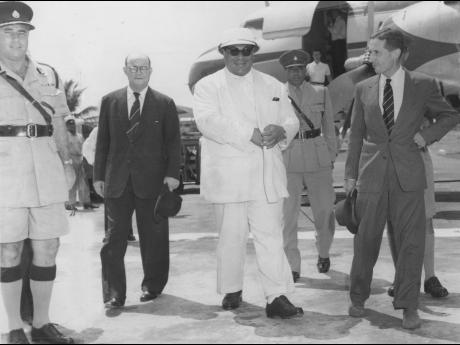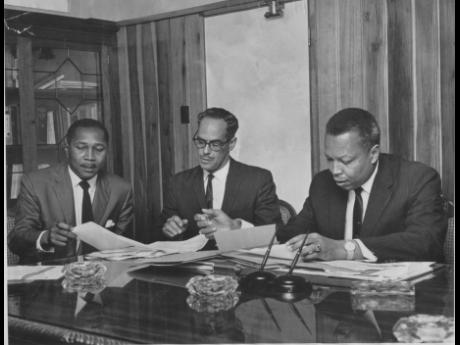Secretaries to the Cabinet
The recent news surrounding the appointment of a new cabinet secretary and a visit to the Cabinet Office’s website led me to look at the history of this post and those who previously held it. This post is also linked to my article on the civil servants (permanent secretaries), which appeared in Arts and Education on June 19. Some secretaries to the Cabinet (cabinet secretaries) were permanent secretaries.
The establishment of the cabinet system in Jamaica was formalised in about 1957 and so it seems that the post of secretary to the Cabinet was established then. The posts of both secretary to the Cabinet and permanent secretary are set out in the Constitution at sections 92 and 93, respectively.
The secretary to the Cabinet was initially responsible for mainly the operation of the Cabinet Office, organising Cabinet meetings, setting the agenda in consultation with the premier/prime minister, recording the minutes of the meetings, and ensuring that decisions were disseminated as appropriate. In 1993, following a review, including at least two studies of the public sector, the post of secretary to the Cabinet was upgraded and expanded to include being head of the Civil Service (chief permanent secretary) and chair of the Permanent Secretaries’ Board. The cabinet secretary and the Cabinet Office are now also responsible for, among other things, coordinating formulation and implementation of government policies and the modernisation of the public sector.
HOLDERS OF THE POST
It appears that the first secretary to the Cabinet was John W. Stewart, who held the post from 1958 to 1960. He was a seasoned civil servant who had been permanent secretary in the Ministry of Health prior to his appointment. There were several acting appointments thereafter:
Raphael Algernon Swaby acted in 1959. He had joined the civil service in 1938.
John Barker Avis McFarlane, and his brother, Vincent Homer McFarlane, permanent secretary and diplomat, both experienced senior civil servants, acted at different times in 1960.
In July 1961, Patrick (Pat) W. C. Burke was appointed to the post and held it up to about April 1962. Pat Burke went on to serve at the Jamaican High Commission in London.
He was succeeded by John Barker Avis McFarlane (1916-2004), who had acted in 1960. J. Barker McFarlane, as he was known, was appointed to the post in May 1962 and held it into the 1970s. Lorrell Bruce, who was assistant to Prime Minister Hugh Shearer, was appointed acting secretary to the Cabinet from June to September 1969, while J. B. McFarlane was on vacation leave.
Douglas Collins, who had been a diplomat posted in Canada, actually establishing the Jamaican High Commission there, returned to Jamaica in 1972. He was appointed permanent secretary in the Ministry of National Security and Justice. Thereafter, he was appointed secretary to the Cabinet, possibly in 1979, and served until 1984 when he retired.
I am informed that, from about 1984 to 1992, Ralston Williams served as secretary to the Cabinet. Regrettably, I am unable to find any biographical information about him.
As stated, in 1993, resulting from recommendations from the review undertaken, Dr Carlton Davis, who had been executive director of the Jamaica Bauxite Institute, was appointed cabinet secretary and head of the Civil Service. He held this post until 2008, when he was succeeded by Ambassador Douglas Saunders.
We here in Jamaica do need to include some historical background on websites. The story of the organisation and of those who went before needs to be told. It also helps to inform the discussions.
Contributed by Marcia Thomas


